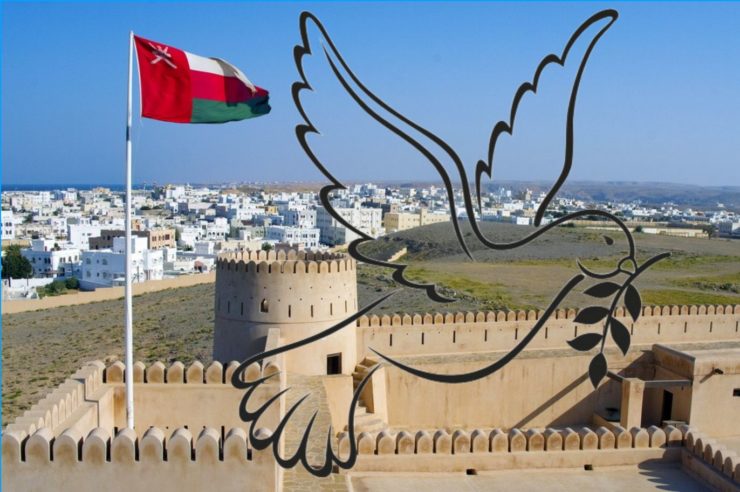
On 19 March, Badr Al-Busaidi, Foreign Minister of the Sultanate of Oman, gave an interview to CNN in which he commented on the situation in Gaza and the Israeli ground operation in Rafah. The Omani called on the international community to de-escalate the conflict and call for an immediate ceasefire. Al-Busaidi said that the crisis in the Red Sea, the activation of pro-Iranian proxies in the region, the intensification of clashes between various terrorist groups in the region and the US military were the natural outcome of the degenerating Arab-Israeli conflict.
The Omani Foreign Ministry described Tel Aviv’s actions against the Palestinians as a policy of “deliberate starvation”. The diplomat also backed Senator Chuck Schumer’s call for Benjamin Netanyahu to hold elections. According to Schumer, the Israeli prime minister, the most prominent representative of the American-Jewish symbiosis, has “lost his way” and is now the main obstacle to peace in the Middle East. Commenting on the senator’s words, Al-Busaidi pointed out that within Israel itself, citizens do not want the war with the Palestinians to continue, but the country’s far-right leadership is not listening to the voices of ordinary Israelis. According to the Omani, the new elections should help Israeli citizens determine the fate of their state and hasten the end of the Arab-Israeli conflict.
It should be recalled that the Sultanate of Oman has almost always been a peaceful and friendly state that has sought to ensure national security, primarily through peaceful arrangements with its neighbours. Having overcome internal and external instability, Oman has taken on the role of mediating disputes between regional and external actors. Muscat has acted as a mediator in the Iran-Iraq and Qatar-Emirati confrontations, helped Yemen’s warring factions reach an agreement, and mediated in the Iran-Saudi Arabia and Iran-US dialogues.
Currently, the Sultanate’s position on the Arab-Israeli conflict does not differ from that of most Arab countries, which support the establishment of a full-fledged and internationally recognised Palestinian state within the 1967 borders. Muscat recognised the establishment of Palestine in 1988, while it still does not recognise Israeli statehood. However, Oman did not condemn Egypt for normalising relations with Israel under the Camp David Accords, nor did it subsequently criticise the UAE, Bahrain, Sudan and Morocco for signing the Abraham Accords in 2020. In the 1990s, Oman showed interest in a Middle East settlement. During this period, several Israeli dignitaries visited the Sultanate, making it a participant in the peace process. The development of relations between Muscat and Tel Aviv was interrupted by another intifada, after which the sultanate’s role was smoothly taken over by Doha.
December 2022 saw the election of the most right-wing government in Israeli history, whose aggressive policy in Gaza was the catalyst for the events of 7 October 2023. Oman did not blame Hamas for the terrorist attack, describing it as the logical outcome of Israeli pressure on the Palestinians. Muscat’s criticism of Tel Aviv was reinforced by increased diplomatic, economic and humanitarian support for Palestine. The Omani parliament also took an anti-Israel initiative, voting to ban economic, cultural and sporting contacts between the two countries, as well as physical and virtual interaction with Israelis.
In addition, on 12 January 2024, the Omani Ministry of Foreign Affairs issued a condemnation of the US and UK air strikes on Yemeni territories controlled by the Houthi rebels. In addition to calling for an end to military action against Yemenis, the ministry also highlighted the inaction of Western partners regarding Israel’s harsh measures in the enclave. Also of note are some media reports that Oman closed its airspace to Israeli planes after the events of 7 October, and to British and American planes after the attacks on the Houthis. However, there has been no official confirmation of this information.
To date, the Sultanate is the only GCC state to have openly rejected Washington and London’s policy towards the Yemeni rebels, thus reaffirming its commitment to a diplomatic solution to conflicts in the sub-region. Oman, following its Arab brothers Tunisia and Jordan, condemned the United States’ vetoing of the Algerian draft resolution for a peace settlement in the Gaza Strip at the UN Security Council. Omani society is also extremely anti-Israeli and in favour of supporting Palestine. It is clearer than ever that a return to normalisation with Israel is out of the question, but the Arab and Muslim ummahs will definitely support Oman’s mediation efforts, even though Muscat has long been a non-mediator in the conflict.
Madi Khalis MAALOUF, political observer, especially for online magazine “New Eastern Outlook”